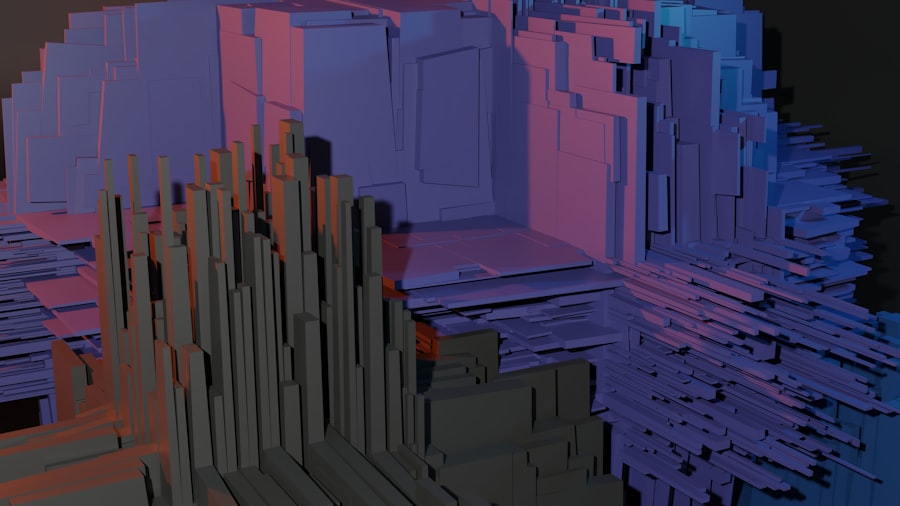The concept of the multiverse has captivated the imagination of scientists, philosophers, and storytellers alike. At its core, the multiverse refers to the idea that our universe is not the only one that exists; rather, it is part of a vast ensemble of universes, each with its own distinct properties and laws of physics. This notion arises from various theories in cosmology and quantum mechanics, suggesting that there may be an infinite number of universes coexisting alongside our own.
Each universe within this multiverse could have different dimensions, physical constants, and even alternate versions of reality, leading to a rich tapestry of possibilities. One of the most prominent frameworks for understanding the multiverse comes from the theory of cosmic inflation. According to this theory, shortly after the Big Bang, the universe underwent a rapid expansion, which could have led to the creation of multiple bubble universes.
Each bubble represents a separate universe with its own unique characteristics. Additionally, quantum mechanics introduces the idea of many-worlds interpretation, positing that every quantum event spawns a branching of realities, resulting in a multitude of parallel universes. These theoretical underpinnings provide a foundation for exploring the multiverse and its implications for our understanding of existence.
Key Takeaways
- The Multiverse refers to the hypothetical set of multiple possible universes, including our own, that together comprise all of reality.
- The Metaverse is a virtual reality space where users can interact with a computer-generated environment and other users.
- Navigating different realms in the Multiverse requires an understanding of quantum mechanics and the ability to manipulate space-time.
- Tools and technology for exploring the Multiverse include advanced spacecraft, quantum computers, and virtual reality simulations.
- Challenges and dangers of Multiverse navigation include the risk of getting lost in unfamiliar dimensions and encountering hostile entities.
The Concept of the Metaverse
Immersive Experience
The metaverse is often envisioned as an immersive experience that combines elements of augmented reality (AR), virtual reality (VR), and the internet, allowing for seamless interaction between digital and physical worlds.
Rise of the Metaverse
The metaverse has gained significant traction in recent years, particularly with advancements in technology and the increasing popularity of online gaming and social platforms. Companies like Meta (formerly Facebook) are investing heavily in creating expansive virtual environments where users can socialize, work, and play.
Endless Possibilities
The potential for creativity and collaboration within the metaverse is vast, offering opportunities for everything from virtual concerts to educational experiences. These digital realms are not merely extensions of existing social media; they represent a new frontier for human interaction, where individuals can create their own experiences and engage in activities that transcend the limitations of the physical world.

Navigating the multiverse presents a fascinating challenge, as it involves traversing various realms that may operate under different physical laws and dimensions. Each universe within the multiverse could have its own unique set of rules governing time, space, and matter. For instance, one universe might allow for faster-than-light travel while another could be governed by entirely different principles of physics.
This diversity raises intriguing questions about how beings from one universe might interact with those from another and what technologies or methods would be required for such navigation. Theoretical physicists have proposed various models for navigating these realms. One such model involves the concept of wormholes—hypothetical passages through spacetime that could connect disparate points in the universe or even different universes altogether.
If wormholes exist and could be stabilized, they might serve as gateways for exploration across the multiverse. However, this remains speculative territory, as current scientific understanding does not provide concrete evidence for their existence or practical means of utilizing them.
Tools and Technology for Exploring the Multiverse
| Tool/Technology | Description | Application |
|---|---|---|
| Telescopes | Optical instruments for viewing distant objects in space | Observing galaxies, stars, and other celestial bodies |
| Particle Accelerators | Devices that accelerate charged particles to high speeds | Studying subatomic particles and fundamental forces |
| Space Probes | Unmanned spacecraft sent to explore outer space | Collecting data on planets, moons, and asteroids |
| Quantum Computers | Computing systems based on quantum mechanics | Simulating complex quantum systems and algorithms |
As we delve deeper into the exploration of the multiverse, it becomes essential to consider the tools and technologies that could facilitate this journey. While much of this remains theoretical at present, advancements in quantum computing and simulation technologies hold promise for modeling complex multiversal scenarios. Quantum computers, with their ability to process vast amounts of data simultaneously, could potentially simulate different universes and their interactions, providing insights into their properties and behaviors.
Moreover, virtual reality technology could play a crucial role in visualizing and experiencing these alternate realities. By creating immersive environments that mimic various aspects of different universes, researchers and enthusiasts alike could gain a better understanding of what it might be like to navigate through them. This intersection of technology and theoretical physics opens up exciting possibilities for education, research, and entertainment as we seek to comprehend the complexities of the multiverse.
While the allure of exploring the multiverse is undeniable, it is essential to acknowledge the challenges and potential dangers associated with such endeavors. One significant concern is the unpredictability inherent in navigating unknown realms. Each universe may present unique hazards—be it extreme environmental conditions or unfamiliar physical laws—that could pose risks to explorers.
The lack of established protocols for inter-universal travel raises questions about safety measures and preparedness for unforeseen circumstances. Additionally, ethical dilemmas arise when considering interactions between beings from different universes. The potential for unintended consequences looms large; actions taken in one universe could have ripple effects across others.
This interconnectedness necessitates a careful approach to exploration, emphasizing responsibility and caution in our interactions with alternate realities. As we contemplate venturing into these uncharted territories, it becomes imperative to establish guidelines that prioritize safety and ethical considerations.
Ethical Considerations in Multiverse Exploration

Respecting Sentient Beings in Alternate Realities
One primary concern revolves around the potential impact on sentient beings inhabiting alternate realities. If we were to encounter intelligent life forms in another universe, questions about consent, rights, and responsibilities would arise. Engaging with these beings without understanding their culture or societal norms could lead to exploitation or harm.
The Philosophical Dimension of Identity and Moral Accountability
Furthermore, there is a philosophical dimension to consider: if multiple versions of ourselves exist across different universes, what does that mean for our identity and moral accountability? The implications of our actions in one universe affecting another raise profound questions about free will and determinism.
Fostering Dialogue for Responsible Exploration
As we navigate these complex ethical landscapes, it becomes crucial to foster dialogue among scientists, ethicists, and policymakers to develop frameworks that guide responsible exploration.
The potential applications of multiverse navigation extend far beyond mere exploration; they encompass a wide range of fields including science, technology, philosophy, and even entertainment. In scientific research, understanding different universes could provide insights into fundamental questions about our own reality—such as why certain physical constants exist or how life might evolve under varying conditions. By studying alternate realities, researchers could test hypotheses that are impossible to explore within our universe’s constraints.
In technology development, innovations inspired by multiversal theories could lead to breakthroughs in fields like computing and materials science. For instance, if we were able to harness principles from other universes where different physical laws apply, we might discover new materials with extraordinary properties or develop advanced computational methods that revolutionize industries. Additionally, in entertainment and gaming, the concept of multiverse navigation opens up new avenues for storytelling and immersive experiences that captivate audiences by allowing them to explore diverse realities.
The Future of Multiverse Exploration
As we look toward the future of multiverse exploration, it is clear that we stand on the precipice of profound discoveries that could reshape our understanding of existence itself. While much remains speculative at this stage, ongoing advancements in theoretical physics and technology may eventually pave the way for practical exploration of alternate realities. Collaborative efforts among scientists across disciplines will be essential in unraveling the complexities associated with navigating these realms.
Moreover, as society grapples with the implications of multiversal exploration—both scientifically and ethically—it will be vital to engage in thoughtful discourse about our responsibilities as explorers. The future may hold unprecedented opportunities for discovery and innovation; however, it also demands a commitment to ethical stewardship as we venture into uncharted territories. Ultimately, the journey into the multiverse promises not only to expand our horizons but also to challenge our perceptions of reality itself.
In the realm of future trends and innovations in the metaverse, there is an interesting article discussing the emerging technologies shaping the metaverse. You can read more about it here. When it comes to the metaverse’s impact on industries like entertainment and media, there is a compelling article that delves into this topic.

Leave a Reply